With her letter published in the NY Times My Medical Choice Angelina Jolie bravely offered herself and her experience as a kind of case study. And now, as she probably expected, people from far and wide, medical professionals, geneticists, and the media are all wondering if “the most beautiful woman in the world” made the right choice by deciding to go under the knife.
In this medical professional’s opinion the answer is absolutely!—provided she was given all the nuanced details surrounding her medical situation and the various options she had available to her. And that’s where I feel something may have gone awry.
Though I’ve written extensively about genetics I am not a genetic counselor. I feel qualified to offer my perspective publicly because I do have almost 30 years experience reading scientific articles and drawing conclusions, and am compelled to offer my perspective because, when I look at the data, this is what I see:
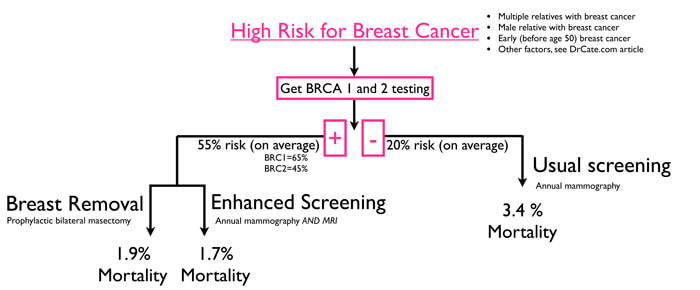
This article is continued below...(scroll down)
It helped. I feel great.
"It’s helped. I feel great."
Kobe Bryant
NBA baskeball player
This has been life changing
"Let me tell you this has been life-changing. I have all of her books, in audible and ebooks! I have gotten rid of all the hateful 8 oils. I have trained my body to eat its own previously toxic body fat. Download that pod it's a game changer!"
Megyn Kelly
Life changing
Deep Nutrition changed my life.
Jesse Watters
Fox News Primetime host
Saved my life
I would like to thank you for literally saving my life. Back in February, I had to be hospitalized while on vacation in Phoenix with an A1C of 11% and had to start taking 2 types of insulin and 2 other meds. I read the Fatburn Fix in April, and followed the program to a tee, and I’m down by 15 pounds, 6.8 A1C, and only one once weekly diabetes medicine. Prior to reading the book, it was almost impossible for me to lose weight as a diabetic.
Leontyne Tompkins
I feel free
For the last month, I have really been reading all labels on everything. I have completely remove those 8 oils you talk about. I must tell you, I feel great! I have more energy and I am now 197 lbs (have always been around 205 to 210lbs). I eat potatoes with real butter, grass fed steak, pasta with the right toppings. I eat everything! I seem to crave less sugar. I love it!
Robert Kirkendall
I feel so much better
I had terrible aches and pains everywhere in my body, my hands, shoulders and knees. I feel so much better and the way I feel is motivating me every day! Thank you
Mike Deb Wootan Burcin
Better than ever
I am an anesthesiologist in Orlando and a huge fan of both of your books! I have been incorporating your principles for the last 10 months and feel that my health is better than ever.
Marnie Robinson, MD
My allergies disappeared
The biggest difference for me (and a surprising one) is that my allergies have almost completely disappeared! This is a big deal for me, because I’ve had allergies most of my life and they have often affected what I do which is a teaching music in [a public school district]. In general, I feel much better and have more consistent energy throughout the day.
Erica Turrell
Heart Palpitations have Stopped
I’ve lost 20+ pounds (also fasting 16-24 hours daily) and haven’t had palpitations except for one occasion — I had a mini bag of Fritos for the first time in July. And, I feel better now on a daily basis than I ever did all through college.
Mike Wright
Deep Nutrition and Fatburn Fix reader
I’ve lost over 50 pounds
I’ve lost over 50 pounds. I’m 56 years old. Cutting processed food and unhealthy fats from my diet was one of the first things I did on my health recovery journey...I went cold turkey off the bad oils. Emptied my pantry into the trash and just started eating real food
Mitzi Wilkinson Champion
Knowledge I didn’t know I needed
Your Fatburn Fix book is amazing, my friend. Thank you! I’m an Functional Nutritional Therapy Practitioner and I know my stuff. This is the extra layer of knowledge I didn’t know I needed. Well done!
Jennifer Dillman
Fatburn Fix reader
Lost a solid 20 lbs and my bloodwork is great
I have lost a solid 20 lbs and my bloodwork (after 3 months of eating your way) was even better! I was metabolically healthy (per your book) before I read your book, but barely. Lowering my weight, sealed the deal! I have been talking about you and your book to anyone who will listen...Thank you for all you’ve done and what you continue to do! You are changing lives for the better!
Missy Cramer
FatBurn Fix reader
Lost 20 lbs I could never shed
I love your Fatburn Fix! Has helped me so so much! I have had the dreaded weight all my life - 20 or so pounds I could never shed. I have lost that now. I only eat 2 meals a day lunch and dinner with a glass of milk or cappuccino around 4 to hold me over. No snacking and not bad oils. It has been the key to unlocking my fatburn. I work out in the am and believe I am burning fat for energy not from food!
Lauren Smith
I feel great
My waist is four inches smaller. I feel great and many of the minor aches and pains that I had (knees and lower back) are gone. Also, my muscle tone is amazing, even though I have not increased my workout routine.
Richard Janelle
Completed Dr Cate's online course
The go-to for strength and conditioning coaches
Whenever I advise my clients about eating to perform I go straight to what I have learned from Dr. Cate. Her book Deep Nutrition has become the go-to for strength and conditioning coaches across the country.
Kent Matthes
Major League Baseball Agent with WME Sports
Dismantles the lie
Dr. Cate dismantles the lie that seed oils are healthy, which may the biggest lie about nutrition and health because it’s so insidious.
Ken D Berry, MD
Author of Lies My Doctor Told Me
She knows the chemistry
Dr. Cate alerts us to the harms of seed oils and she’s convincing because she knows the chemistry better than anyone.
Dr. Drew Pinskey, MD
Globally recognized internal medicine and addiction medicine specialist, media personality, LoveLine Host, and New York Times bestselling author
No one is better at communicating nutritional truth
Dr. Cate has had the single greatest impact on how we talk to people about fueling for both performance or durability. While we all are a little unique, the foundational principles of human nutrition are immutable. If you are looking to create a more durable, resilient body, no one is better at communicating nutritional truth than Dr. Cate.
Dr. Kelly Starrett
Physiotherapist coach and New York Times and Wall Street Journal bestselling author
Highly recommend The Fatburn Fix
Dr. Shanahan has had a significant impact on my practice of medicine. I am known as a Low Carb Doctor, but I never really appreciated the negative effects of processed seed oils on the health of my patients. I highly recommend The Fatburn Fix to my patients and have a loaner copy in my waiting room. It is amazing how quickly blood sugars and overall health improves with cutting seed oils. It is not just about the carbs!
Dr. Brian Lenkzes, MD
CEO of LowCarbMD San Diego, co-host of Low Carb MD Podcast and host of Life's Best Medicine Podcast
Respected in the sports world
Dr. Cate reordered my diet when I was with the L.A. Lakers, and the benefits, for me personally, were felt immediately and have served me to this day. I’ve come to take real food so seriously I started a small family farm. I know of no M.D./nutritionist more respected in the sports world than Dr. Cate Shanahan.
Chris Kaman
NBA Player
Brought seed oil issue front and center
Cate brought the seed oil issue front and center. Healthy fats matter. So much so that I created an entire product line to swap out bad fats with good.
Mark Sisson
Founding Father of the Primal/Paleo Movement
Optimal health starts with food
If you want to understand how optimal health starts with food, start with Dr. Cate. Her book Deep Nutrition leaves you with an appreciation of the profound relationship between our genes and the planet, inspiring us to be good shepherds of both.
Dallas Hartwig
Attribution author of The Whole 30
Helped me with endurance
Deep Nutrition really helped me with endurance. I started to feel better as a player. I was able to run more, I was able to be more active …and I just decided to keep going with it to this day.
Dwight Howard
NBA Player
Silver bullet for me
Dr Cate’s teachings helped me lose 60 pounds like it was nothing. It was like a silver bullet for me.
Paul Grewal, MD
Dr Grewal Internal Medicine, MD, author of Genius Foods
Radically improve your health…
Dr. Shanahan has provided a solid reference that deserves a place in the library of anyone who is seriously interested in nutrition. Her perspective on the vital role that healthy fat has in our diet is novel and, if implemented, can radically improve your health.
Dr. Joseph Mercola
Author of Fat for Fuel and Founder of Mercola.com
Pull up a chair…
I have based my work on the idea that getting the right kinds of healthy fats into your body and avoiding the worst fats is essential to optimal health. I've interviewed dozens of the world's top experts about this, and I know of no one who speaks more eloquently on this topic than Dr Cate. If she’s talking fats, pull up a chair. Take notes.
Dave Asprey
Author of the Bulletproof Diet
The key to unlocking my fatburn
I love your Fatburn Fix! Has helped me so so much! I have had the dreaded weight all my life - 20 or so pounds I could never shed. I have lost that now. I only eat 2 meals a day lunch and dinner with a glass of milk or cappuccino around 4 to hold me over. No snacking and not bad oils. It has been the key to unlocking my fatburn.
Lauren Smith
Saved my life
I would like to thank you for literally saving my life. Back in February, I had to be hospitalized while on vacation in Phoenix with an A1C of 11% and had to start taking 2 types of insulin and 2 other meds. I read the Fatburn Fix in April, and followed the program to a tee, and I’m down by 15 pounds, 6.8 A1C, and only one once weekly diabetes medicine.
Leontyne Tompkins
> Tears of joy
I'm crying tears of joy and appreciation for all you've done for me and my health! Without Deep Nutrition and Fatburn Fix, I would literally still be in the vicious cycle I'd been fighting all my life! In a nutshell - I am no longer a compulsive overeating addict suffering under the crushing 'thumb' of all food and alcohol.
Penni Wicks
It looks as though, if these sources are accurate, it appears there is little benefit, actually no benefit, to prophylactic mastectomy (prophylactic meaning to prevent ever developing cancer) over screening in terms of mortality.
This chart is intended solely to show people who have not been through the process that it’s a pretty close call and can not be an easy decision. It is not in any way intended to suggest Jolie made the wrong choice.
I would like to direct your attention to the medical system itself.
Time for a new approach?
As a medical professional, I’m observing that the culture of intervention in this country has evolved to such an extent that some who counsel patients through what could be the most challenging decision making period of their lives are presenting the most invasive options without hesitation and failing to present the least invasive. Hospitals and insurance plans have greased the rails that bring patients under the knife, meanwhile if anyone wants to learn about the proven benefits of diet and exercise they must do so without any professional guidance—at least none that insurance is going to cover.
Angelina Jolie wrote her article in the hopes that she would start a dialogue and her bravery—her willingness to share her feelings—certainly got our attention. I would like to see another kind of bravery take center stage: Someone in a position of power willing to challenge the status quo by initiating a dialogue on the power of our inborn biology to protect us from cancer.
There is good reason to believe, thanks to accumulating research, that the vast majority of women who do ultimately develop cancer (and we need to remember that Angelina Jolie did not herself yet have cancer) suffer not from a failure in their genes or the inevitability of their family history, but rather from a failure of their lifestyle and the inevitability of their daily choices to allow rogue cells to develop and flourish. And this means if we let a women walk out of our office without advising her of this newly understood reality—which is not an easy thing to do given the implications—we let a powerful opportunity for positive change slip through our fingers.
A Bold New Technology: Biology
For every woman diagnosed with a breast cancer, dozens more first faced down the potential diagnosis before ultimately learning that the biopsy was negative or the second mammogram came back normal and they dodged the bullet, at least for the time being. So each day around the country, as women leave the doctors office relived of their fear but still in the dark about our new understanding of cancer’s origins, hundreds of such opportunities are being lost. With healthcare costs spiraling upwards at a rate that is jeopardizing the entire concept of health insurance, the need for awareness of this new perspective about cancer seems urgent. Who is going to step up and push the conversation in this new direction?
Cancer is one of the most terrifying words I have to use while in a room with a patient. Those facing a possible diagnosis of cancer are some of the most anxious, sleep deprived patients I see, and breast cancer, with its connotations of disfigurement and its track record of removing young women from their families prematurely, is perhaps the most anxiety provoking. If anyone considers this her potential reality she quickly prepares to make radical changes. In fact, a radial change seems like the most logical reaction, the safest choice, in that it is the most guaranteed to make a clean break from the terrifying present. In the midst of all the jargon and push for immediate action from surgeons and other specialists, it is my constant challenge to make sure that the choices presented to my patients are framed up properly.
If we present the benefits of only the invasive options, then patients are going to make invasive choices first. And right now, I am not convinced that this habit of our current medical status quo is at all in keeping with the dictum primum non nocere: First do no harm.
REFERENCES and RELEVANT ARTICLES used in compiling data
On the need for genetic counseling before BRCA testing (see my second comment below)
Criteria doctors commonly use to decide if you are at high risk for breast cancer
Study Shows Mutations in BRCA Genes Don’t Influence Survival Rates
BRCA1 and BRCA2 Genes and Breast Cancer Survival
Ten- to Fourteen-Year Effect of Screening on Breast Cancer Mortality
Outcome of Preventive Surgery and Screening for Breast and Ovarian Cancer in BRCA Mutation Carriers
Long-term results of screening with magnetic resonance imaging in women with BRCA mutations.
Cancer statistics, 2013.
Prophylactic Mastectomy
Bilateral prophylactic mastectomy reduces breast cancer risk in BRCA1 and BRCA2 mutation carriers: the PROSE Study Group.
Breast cancer in 3,558 women: age as a significant determinant in the rate of dying and causes of death.
Risk-reducing strategies for women carrying brca1/2 mutations with a focus on prophylactic surgery
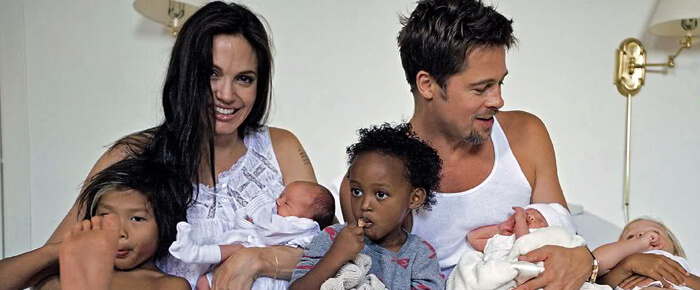

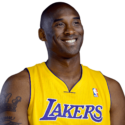

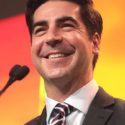
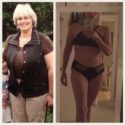

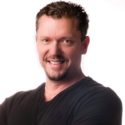

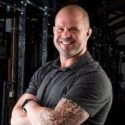


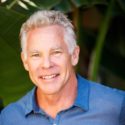
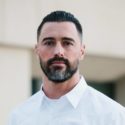

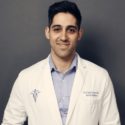
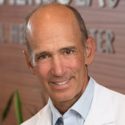

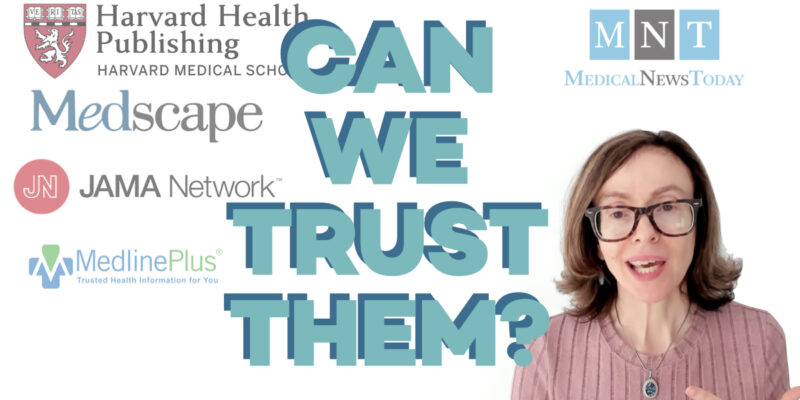
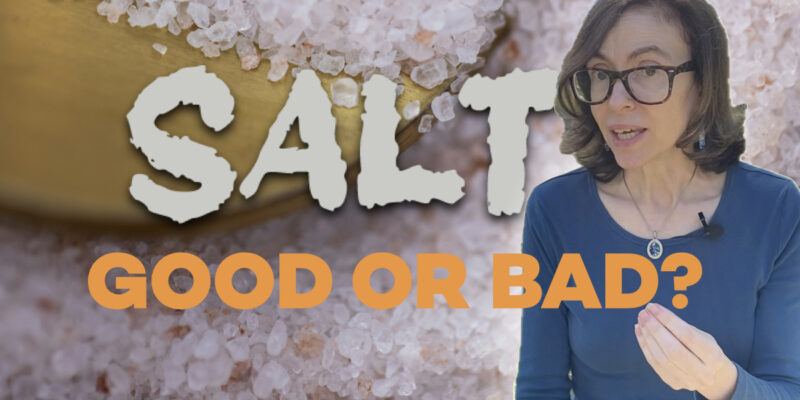

Mastectomy is not without risks also. Upto 70% report chronic pain afterwards. And 10-15% of women have severe long-lasting pain.
‘What is the risk of complications following contralateral preventive mastectomies with breast reconstruction?
Surgical complications and rates of additional surgery in breast reconstruction range from 10-50%.
Implant reconstructions are associated with a higher risk of reoperations than tissue transfer reconstructions.
Reoperations are performed for various reasons: postoperative complications (i.e. infections, hematomas etc.), implant-related issues, aesthetic concerns (non-implant related), etc. Implant contracture is the most common indication for reoperation.
Most reoperations occur within the first year of the reconstruction.
Chronic pain (persisting at least 2 years) after mastectomy and reconstruction is a frequent problem, affecting up to 70% of women. This can negatively impact on sleep (in 36% patients) and daily activities (in 22%). 10-15% of women can experience severe, long-lasting pain.’
http://www.integrativeoncology-essentials.com/2013/05/the-rising-tide-of-the-contralateral-prophylactic-mastectomy-know-the-facts/
Hi Cate,
Wonderful post!! We were supposed to have dinner when Dave Asprey was in town (Patrik, RIchard, etc). We missed ya!
What I never hear in this discussion about BRCA is the faulty gene expression RE: lack of DNA corrections and increased DNA oxidative produces like 8-hydroxy 2′ deoxyguanosine, which there are many modalities to improve (anti-inflammatory low lectin diets, antioxidants, melatonin, vitamin C, polyphenols, berry extracts, etc).
I was compelled to also dispel BRCA ‘mythology’….
BRCA1/2 is a defect in DNA repair including lymphoblasts and fails to fix 8OHdG (oxidative DNA damage product, 8-hydroxy-2’deoxyguanosine)
http://www.ncbi.nlm.nih.gov/pubmed/17288454
BRCA1/2 raises risk in men of breast, prostate, pancreatic, gastric and hematologic cancers
BRCA1/2 raises risk in women of breast (73%), ovarian (41%), colon (2-fold), pancreas (3-fold), stomach (4-fold) and fallopian tube (120-fold) cancers
BRCA1/2 like all mutation genes is under epigenetically controlled regulation — for example, silencing of the gene occurs with polyaromatic hydrocarbons (pollution), insulin, and hypomethylation (lack of methyl donors — either depletion or dietary deficiency — or COMT, MTHFR, etc variants). Best food sourced methyl donors are methylB12, choline and methylfolates (free range egg yolks, liver, meat, seafood — sorry no plant sources you crazy vegans). Insulin 101: Insulin is a growth hormone and one function is to induce stimulation of female ovaries to increase testosterone secretion. Unfortunately, in both men and women, normal levels and excess testosterone may be converted into estrogens under insulin induction by P450-aromatase (aka, CYP19), in many tissues including fat tissues, breast cells, endothelial cells and prostate cells…. Certain gene variants accumulate significantly more estrogens than non-carriers (COMT, CYP19).
Compared with noncarriers, women carrying at least one CYP19 8r allele had 20% higher estrone (P = 0.003), 18% higher estradiol (P = 0.02), and 21% higher free estradiol concentrations (P = 0.01). Women with the COMT Met/Met genotype had 28% higher 2-hydroxyestrone (P = 0.08) and 31% higher 16?-hydroxyestrone concentrations (P = 0.02), compared with Val/Val women. Cancer Epidemiol Biomarkers PrevJanuary 1, 2004 13; 94.
BRCA1/2 silencing may be epigenetically avoided by diet, resveratrol and other antioxidants
BRCA1/2 needs a genetic ‘cofactor’ like MTHFR, COMT, CYP19 (aromatase which converts testosterone to estrogens), CYP1B1 (pathway increases 16OHE1, estrogen carcinogen adduct) and CYP1A1 to be carcinogenic according to emerging evidence. These genetic polymorphisms are all related to raised toxic estrogen metabolites and creation of estrogen dominant states.
Metametrix has the lab test for 8OHdG — ION and Organix… other labs also offer (urine, salivary).
http://drbganimalpharm.blogspot.com/2013/05/the-great-cholesterol-fairy-tale.html
Genetic counseling is highly recommended prior to BRCA testing for a variety of reasons including future insurance implications for the individual being tested and their family members.
This is an excerpt from an article written for physicians after Jolie’s letter was published.
“It’s not something you want to automatically order,” agreed Dr. Madlensky, who says that ideally, patients should be screened in primary care for red flags that might suggest the need for referral to genetic counseling — even before a test is considered.
“There are different types of BRCA testing, and knowing which one to order is a bit complicated, depending on ancestry, cancer diagnosis or not, known BRCA mutation in family or not,” she said, adding that a patient’s family history should not be taken at face value.
“A lot of times, the story that is in the family is not accurate. Breast cancer reporting is pretty good, but when people report they had a relative with ovarian cancer, often when we try to get those records, we find it was not ovarian but cervical or uterine or something not related to the BRCA genes.”
Hi Cate, thought you would enjoy the heart felt point of view expressed by Peggy Orenstein in the NY Times magazine article about the pink-washing of breast cancer – here’s the link if you haven’t seen it http://www.nytimes.com/2013/04/28/magazine/our-feel-good-war-on-breast-cancer.html?ref=magazine
In my own experience, personal and professional, I have been most impressed for screening on well-done (they are not all well done) thermograms – you have some good options in your area, Mill Valley specifically … what are your thoughts?
Extraordinary summary. A long article but all pages are packed with powerful insights. Thank you for posting this!
While we will never know why she went down this path, I’d guess the loss of her mother was the true motivator. It’s true we are taught to live in fear of an array of diseases, especially cancer and then in particular, breast cancer for women. When you think about it though, we are taught to fear everything from childbirth, to kids being stolen, to unemployment, to dementia
I would be interested to know if, in your practice, you recommend mammograms for women over 40.
Thanks
Jen
I recommend starting at 40 for anyone who wants screening at that time, but explain the two primary reasons the schedule was scaled back from starting at 40 to starting at 50. 1: Radiation harms coronary arteries. And 2: Finding cancer early is not universally helpful, as once assumed, because the body can sometimes eradicate cancer when left alone.
According to the country’s leading researchers in this field, one million women have been treated for cancer unnecessarily, meanwhile, some cancers seem to defy early detection with mammography. The practice changing article was published in the New England Journal of Medicine, entitled Effect of Three Decades of Screening Mammography on Breast-Cancer Incidence
An excerpt from a related article interviewing these researchers follows (their work is largely responsible for the recent scaling back in the recommendations):
“We need to start telling the truth,” said Welch. “We’ve promoted this as if it’s the most important thing a woman can do for her health. And the truth is that it’s a really close call.”
Women in their 40s who feel comfortable getting annual mammograms should not be dissuaded from doing so, he said. “But women who have never felt good about it, who felt coerced into the procedure, should feel equally good about not having it.”
Similarly, Welch said, women who do get screening mammograms and are found to have a tumor in a very early stage may want to consider alternatives to aggressive treatment — engaging in watchful waiting, for instance, or signing up for a clinical trial of drugs that may halt or slow the progression of cancer. Men have faced similar issues in deciding what to do about screening and treatment of prostate cancer, he said.
“We should tell women about the trade-offs and we should allow them to make their own decision,” he said.
I made a writing mistake, I meant to say she is now on morphine.
A friend’s daughter, who is only 31 years, is now dying from breast cancer. I watched as she was told to go on the Paleo diet and really couldn’t adhere to it. I watched as she decided to get more and more Chemo even though there was not a chance of it working. So sad and it made her so sick. She is not on large amounts of morphine and walks around, when she can, like a zombie. It was initially given for her anxiety and now she is addicted to it also.
Addiction to high carbohydrates foods are not to be sneezed at given that a young woman would choose chemo over having to change her diet. Just like the smoker who continues to smoke when they no longer can breathe because of emphysema they just are so addicted they can’t stop smoking.
I am in Istanbul at the moment and as I watch these people from all over the world I am struck by one thing. They all have wheat belly. Practically every single one of them has that roll of fat, even on the young kids. Wheat in all its forms to eat, is what is seen everywhere I look. The sourdough method is no longer used and this makes it much worse.
We need radical counselling to break free of the hypnotic spell we are all under.